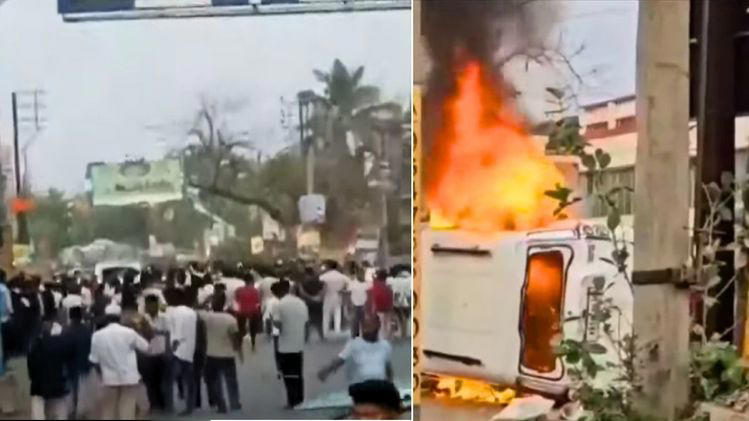By The Sampadak Express
Tensions flared in West Bengal’s Murshidabad district on Tuesday as protests against the newly implemented Waqf (Amendment) Act, 2025, turned violent. The unrest began when demonstrators took to the streets to oppose the law, but the situation escalated when police attempted to prevent protesters from blocking a major roadway. The protests soon descended into chaos, with stones being thrown, vehicles set on fire, and widespread panic spreading across the area.
The Waqf (Amendment) Act, which was passed following intense parliamentary debate and signed into law by President Droupadi Murmu on Saturday, officially came into effect on April 8. The law has stirred significant controversy, especially in areas like Murshidabad, where tensions have been simmering.
BJP leader Amit Malviya quickly responded to the violence, accusing the Mamata Banerjee-led state government of mishandling the situation. “Islamist mobs are running rampant in Murshidabad, with police standing by, likely under instructions from Mamata Banerjee herself,” Malviya said. He linked the unrest to Banerjee’s alleged inflammatory rhetoric, claiming that her speeches had fueled the violence.
Malviya also alleged that the authorities had suspended internet services in Jangipur to suppress information about the disturbances and pointed to the region’s history of anti-Hindu violence, including incidents during the Kartik Puja celebrations. He also noted disruptions to train services as the violence spread.
In a scathing attack, Malviya accused Mamata Banerjee of compromising Bengal’s social harmony with her alleged “Muslim appeasement” policies, suggesting the state was on the verge of following a path similar to that of Bangladesh.
As the situation remains tense, authorities are working to restore order, while political figures continue to trade accusations over the handling of the unrest.






